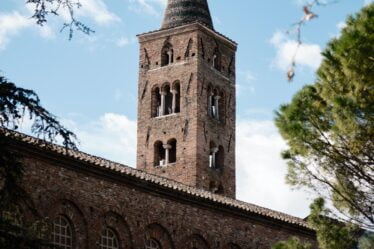

Giovan Fagiuoli Satirical Genius is not just a name you stumble upon in dusty Florentine history books. Rather, it’s a symbol of wit, rebellion, and biting intelligence. In this article, we’ll discover how Giovan Fagiuoli Satirical Genius turned humor into a weapon and satire into survival — all while keeping a mischievous grin on his face.
A Pen Sharper than Any Sword
Born in Florence in 1660, Giovan Fagiuoli Satirical Genius was no ordinary poet. While scholars of his time buried themselves in ancient manuscripts, he chose instead to point his sharp pen at society’s absurdities. From nobles to priests to puffed-up politicians, no one was safe from his elegantly ruthless jokes.
Unlike others, he never resorted to vulgarity. His charm lay in his ability to strike a blow and still make you laugh — or at least blush. With humor as his shield and irony as his sword, he made an art of mocking the powerful without ever losing the favor of Florence’s elite.
Satire as Survival in Baroque Florence
Florence in the late 1600s was a city full of grandeur, but also hypocrisy. This is where Giovan Fagiuoli Satirical Genius thrived. His poems and theatrical comedies were sparkling cocktails of sarcasm and playful malice — enough to amuse the stiffest aristocrats and shake the egos of those who took themselves too seriously.
“If Florence were a social network,” one might say, “Fagiuoli would’ve been the first influencer—armed not with selfies, but with savage wit.”
And indeed, he gathered a loyal following. Admirers hung onto his words, waiting for the next poetic jab. Meanwhile, his critics — often the targets of his rhymes — would’ve preferred him gagged with a weak espresso.
For a sampling of his writing style, you might enjoy this brief anthology of Italian satirical poetry.
The Grand Duke’s Embarrassing Encounter
One day, as the story goes, Giovan Fagiuoli Satirical Genius was leaning over the Ponte alla Carraia in Florence, scribbling into his notebook. The Grand Duke passed by in a litter and asked him:
“What are you doing, Fagiuoli?”
“Ah, Your Highness,” he replied with a smirk, “just jotting down all the fools who walk past.”
It was these kinds of encounters that made Fagiuoli a beloved icon. He had the courage to laugh at power, face to face, and still be invited to the palace.
To explore the cultural backdrop of Baroque Florence where Fagiuoli thrived, visit this insightful overview on the Medici and Florentine court life.
A Legacy of Laughter and Truth
Giovan Battista Fagiuoli died in 1742, but his sharp humor lives on. In his time, he wasn’t just a jester — he was a truth-teller. His pen cut deeper than a sword, and his legacy reminds us that laughter can be revolutionary.
Even today, those who read him — whether scholars or casual readers — still chuckle at his perfectly timed jabs. In a city full of statues and solemnity, Giovan Fagiuoli Satirical Genius remains a rare breath of irreverent air.
For those interested in reading more about Italian satire and the literary tradition Fagiuoli belonged to, check out this scholarly resource on early modern Italian literature.
Final Thoughts
Through every sharp verse and clever remark, Giovan Fagiuoli Satirical Genius continues to echo through the streets of Florence. His life proves that sometimes, the best way to tell the truth is with a smile — and maybe a little sting.



